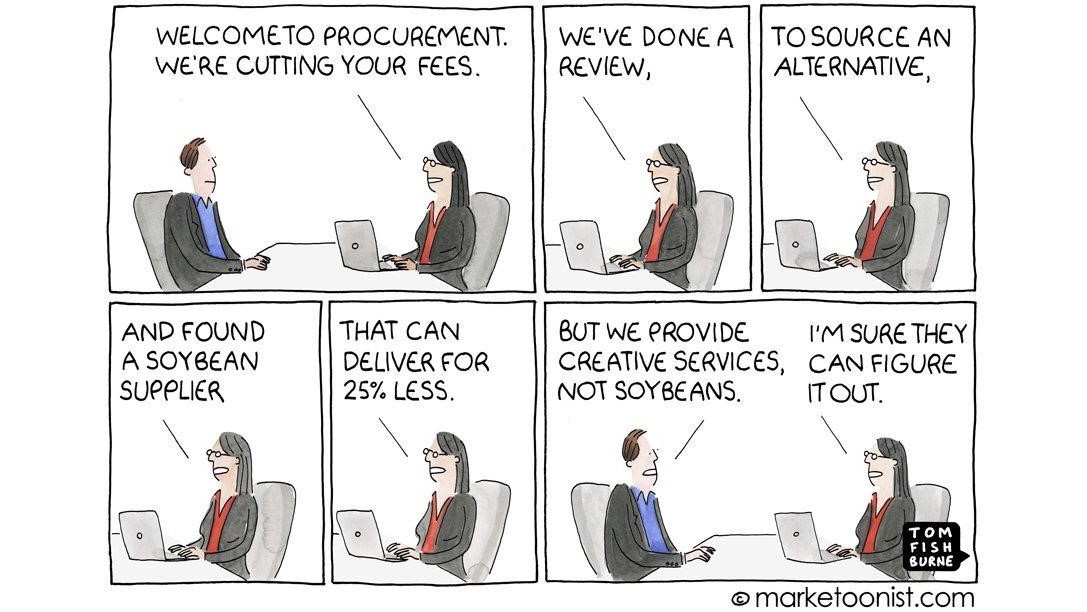A blog from Buyer/Seller Insights points out that there is bad buying just like there is bad selling. They go further to suggest that sellers who can help procurement buy better will achieve a competitive advantage. We couldn't agree more.
One of the core problems we see is that sellers don't understand the role of procurement professionals and therefore get anchored on the price conversation with buyers. Part of this misunderstanding is this: how procurement buyers articulate their role–and the reality of what their role is, are actually two different things.

THE IMPLICATIONS OF THIS MISUNDERSTANDING
Recently, we had an opportunity to run a few procurement focused negotiation sessions for a client of ours. The first step in this session was to gauge how much sales really understood about procurement.
For the assessment, we asked each seller in the session four questions:
- What does procurement mean when they refer to their internal customers?
- What is internal customer satisfaction?
- What does share of spend mean?
- When procurement speaks of a “business fit” what do they mean?
In this session, like all the others before it, most of the participants did not have clear answers to these questions. This knowledge gap allows buyers to lead the conversation where they want it to go.
What about your team? Can your sales team answer these questions and therefore have a true business vs. price discussion with procurement buyers?
AVOIDING PROCUREMENT IS NOT THE SOLUTION
When sellers don’t understand how to work with procurement, we often hear them say that their solution is to try to avoid procurement at all costs, thinking it is better to focus on selling to the business stakeholders. We don’t believe that is the best solution. For sellers to be successful, they need to count the procurement buyer as an equal stakeholder to other stakeholders in the business.
Through the process of writing a book on buyer negotiation (with supply chain expert Rosemary Coates) and having spent nearly 20 years consulting to many buying organizations on negotiation, I have gained deep insight into how procurement really functions, and what they really care about.
The key to successful collaboration with procurement requires two things:
- Understanding the shifts happening in buyer roles, and what they care about (other than lowering acquisition price). With this understanding, we can change the conversation to one about business value.
- Treat procurement as a strategic stakeholder and bring them into the buy/sell process early and often.
These actions will give sellers a competitive advantage over sellers who don’t do this.
FINAL THOUGHTS
Richard Sterling in his August 22, 2017. LinkedIn post entitled “Procurement Makeover” points out that based on an Ayming Procurement 2020 report, buyers prioritize savings higher than the CEO. In fact, 83% of senior leadership say procurement is not strategically focused. Again, there is opportunity for sellers here.
There is a trend to get procurement more aligned with the business and you as a seller can help. This alignment will also support changing the conversation from price to value.
For more on insights and trends on procurement and how sales can use procurement professionals to gain competitive advantage, check out our article entitled, "Speaking the Language of Procurement."






